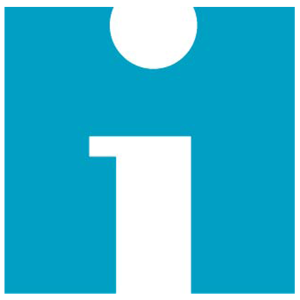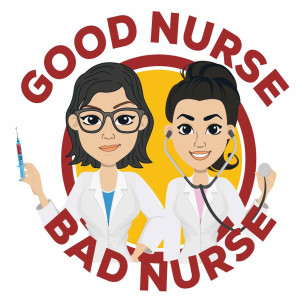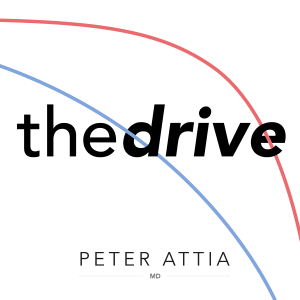
WIHI - A Podcast from the Institute for Healthcare Improvement
Health & Fitness:Medicine
Date: August 9, 2012
Featuring:
- Victor Montori, MD, MSc, Director, Mayo Clinic Healthcare Delivery Research Program; Professor of Medicine, Mayo Clinic.
- Nilay Shah, PhD, Assistant Professor of Health Services Research, Mayo Clinic
- Dr. Montori will be offering a Special Interest Keynote on Minimally Disruptive Medicine on December 11, 2012, at IHI’s National Forum.
One of the most common phrases used to describe patients who are not taking their prescribed medications or following up on the recommendations of their health care providers is “non-compliant.” What if we viewed the behavior as an act of civil disobedience instead?
This provocative notion definitely got the attention of health professionals in the audience at IHI’s 13th Annual Summit on Improving Patient Care in the Office Practice and the Community (March 18-20, 2012). It’s the thinking of Dr. Victor Montori, a diabetologist and researcher at Mayo Clinic whose keynote remarks at the gathering were, in part, intended to shake up common and sometimes negative assumptions about patients with chronic diseases who don’t seem to be holding up their half of the bargain. Dr. Montori invites all of us to consider the work of being a chronically ill patient, and the burden of increased expectations to follow regimens that don’t easily fit into a patient’s daily life, social circumstances, preferences, and more.
What’s the alternative? Dr. Montori and colleagues call it “minimally disruptive medicine,” and WIHI invites you to learn more about this change of mindset and approach to chronic disease and what it can look like in practice. Host Madge Kaplan and Dr. Montori are joined by Nilay Shah, a health services researcher at Mayo Clinic. Both Drs. Shah and Montori argue that with the growth of patient-centered medical homes and numerous other initiatives that assume a greater role for patients and family members in managing chronic conditions, it’s a critical moment to examine what added workload this implies. The two argue that some of the burden on patients can be reduced if approaches to care are married with efforts to reduce unnecessary and costly over-treatment.
Think of it this way, says Dr. Montori: So-called “non-compliance” is actually an alarm system for a health care system that’s failing patients. The goal needs to be shifting and sharing responsibility for chronic disease with patients and families — not shifting the burden.
To learn a bit more about minimally disruptive medicine, check out the story of Susan and John.
More Episodes
WIHI: Reports from the Frontlines of Effective Crisis Management
 2017-06-27
2017-06-27
WIHI: Primary Care's (New) Pressures and Possibilities
 2017-06-27
2017-06-27
WIHI: Health Care’s Newest Improvers: Patient and Family Advisors
 2017-06-27
2017-06-27
WIHI: The Newest Innovator on the Block: Center for Medicare and Medicaid Innovation
 2017-06-27
2017-06-27
WIHI: A Legible Prescription for Health Care
 2017-06-27
2017-06-27
WIHI: Alert to Change: New Models for Residency Work Hours
 2017-06-27
2017-06-27
WIHI: The Power of Specialty Care – and the Necessity to Use It Wisely
 2017-06-27
2017-06-27
WIHI: The Patient Activist
 2017-06-27
2017-06-27
WIHI: Finding the Will to Bend the Cost Curve
 2017-06-27
2017-06-27
WIHI: Nursing’s New Roadmap: Education, the Workforce, and Health Care Quality
 2017-06-27
2017-06-27
WIHI: The Leaders Needed for the Changes Health Care Needs
 2017-06-27
2017-06-27
WIHI: The Power to Detect and Reduce Harm: IHI’s Global Trigger Tool and Adverse Events in the US
 2017-06-27
2017-06-27
WIHI: Reducing Readmissions, Restoring Revenues: Making Good Care Count
 2017-06-27
2017-06-27
WIHI: The Buzz about Medical Training: It’s (Slowly) Changing
 2017-06-27
2017-06-27
WIHI: Leaders Never Stop Learning
 2017-06-27
2017-06-27
WIHI: Against All Odds: Maternal Survival in Ghana and the US
 2017-06-27
2017-06-27
WIHI: Unprofessional Behavior Not Permitted Here
 2017-06-27
2017-06-27
WIHI: The Image of Better (Radiation) Imaging Practices
 2017-06-27
2017-06-27
WIHI: Learning by Data and by Doing: Low-Cost, High-Quality Health Care in America
 2017-06-27
2017-06-27
WIHI: Coaching’s the Thing for Primary Care Practice
 2017-06-27
2017-06-27
Create your
podcast in
minutes
- Full-featured podcast site
- Unlimited storage and bandwidth
- Comprehensive podcast stats
- Distribute to Apple Podcasts, Spotify, and more
- Make money with your podcast
It is Free
You may also like

Good Nurse Bad Nurse


The Relaxback UK Show


On Call With Dr. Anselm Anyoha


The Peter Attia Drive


The Doctor’s Farmacy with Mark Hyman, M.D.


- Privacy Policy
- Cookie Policy
- Terms of Use
- Consent Preferences
- Copyright © 2015-2024 Podbean.com


 iOS
iOS Android
Android